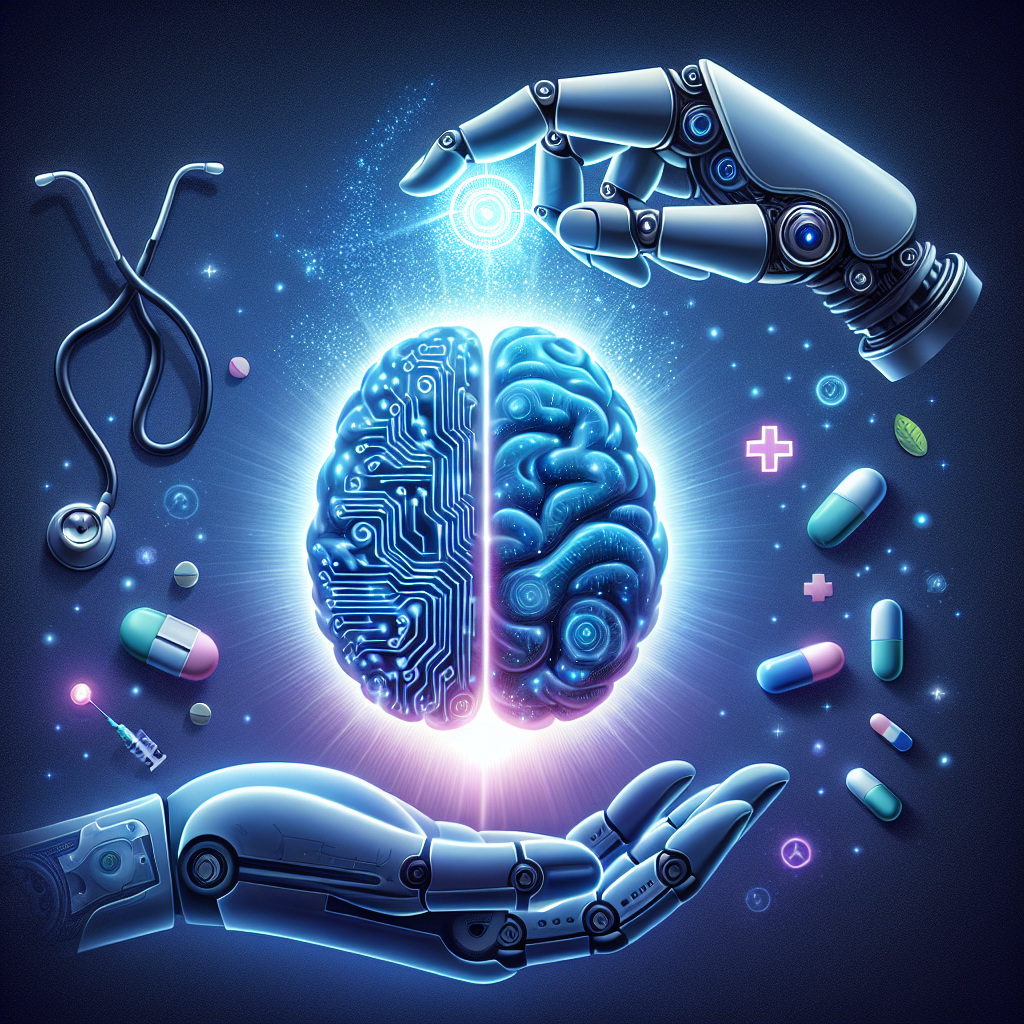The integration of artificial intelligence (AI) in mental health care has the potential to revolutionize the way we diagnose, treat, and support individuals with mental health conditions. With advancements in AI technology, mental health professionals can leverage data analytics, machine learning algorithms, and natural language processing to provide personalized and effective interventions for patients.
AI can assist mental health professionals in several key areas, including:
1. Early detection and diagnosis: AI tools can analyze large datasets of patient information to identify patterns and predict the risk of developing mental health conditions. By detecting symptoms early on, healthcare providers can intervene sooner and prevent the progression of mental illnesses.
2. Personalized treatment plans: AI algorithms can analyze an individual’s genetic, behavioral, and environmental factors to create personalized treatment plans. This tailored approach can lead to more effective interventions and better outcomes for patients.
3. Remote monitoring and support: AI-powered chatbots and virtual assistants can provide round-the-clock support to individuals with mental health conditions. These tools can offer therapy sessions, medication reminders, and emotional support, helping patients manage their symptoms and stay connected to their healthcare providers.
4. Predictive analytics: AI can analyze patient data to predict the likelihood of relapse or the effectiveness of different treatment options. By using predictive analytics, mental health professionals can make more informed decisions about the best course of action for each patient.
5. Teletherapy: AI-powered teletherapy platforms can connect patients with licensed therapists for remote counseling sessions. This technology can increase access to mental health care services, particularly for individuals in remote or underserved areas.
Despite the potential benefits of AI integration in mental health care, there are also challenges and concerns that need to be addressed. Some of the key considerations include:
1. Privacy and security: AI tools collect and analyze sensitive patient data, raising concerns about privacy and security. Mental health professionals must ensure that patient information is securely stored and protected from unauthorized access.
2. Bias and discrimination: AI algorithms can inadvertently perpetuate biases in mental health care, leading to disparities in diagnosis and treatment. It is essential to regularly audit and monitor AI systems to identify and address any biases that may impact patient care.
3. Ethical considerations: The use of AI in mental health care raises ethical dilemmas, such as the potential for AI to replace human therapists or the implications of relying on algorithms to make critical healthcare decisions. Mental health professionals must adhere to ethical guidelines and standards when using AI technology.
4. Integration with existing systems: Implementing AI tools in mental health care requires integration with existing electronic health record systems and workflows. Mental health professionals need to ensure that AI solutions are seamlessly integrated into their practice to maximize their benefits.
5. Training and education: Mental health professionals may require training and education to effectively use AI tools in their practice. Healthcare organizations should invest in training programs to help clinicians understand how to leverage AI technology for improved patient care.
FAQs:
Q: Can AI replace human therapists in mental health care?
A: AI tools can augment the work of human therapists by providing personalized interventions and support to patients. However, the human touch and empathy of a therapist are essential components of mental health care that cannot be replaced by AI.
Q: How can AI help individuals with mental health conditions?
A: AI can assist individuals with mental health conditions by providing early detection and diagnosis, personalized treatment plans, remote monitoring and support, predictive analytics, and teletherapy services.
Q: What are the ethical considerations of using AI in mental health care?
A: Ethical considerations of using AI in mental health care include concerns about privacy and security, bias and discrimination, and the potential for AI to replace human therapists. Mental health professionals must adhere to ethical guidelines and standards when using AI technology.
Q: How can mental health professionals integrate AI into their practice?
A: Mental health professionals can integrate AI into their practice by investing in training and education, ensuring the privacy and security of patient data, monitoring and addressing biases in AI algorithms, and seamlessly integrating AI tools into existing systems and workflows.
In conclusion, the future of AI integration in mental health care holds great promise for improving the diagnosis, treatment, and support of individuals with mental health conditions. By leveraging AI technology, mental health professionals can provide personalized interventions, increase access to care, and enhance patient outcomes. However, it is essential to address the challenges and concerns associated with AI integration to ensure that patients receive safe and effective mental health care.

